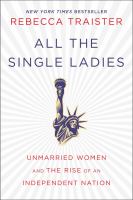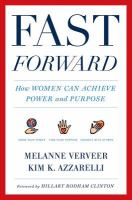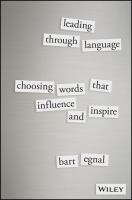
Last week I overhead a faculty member describing his trip to South America for the holidays. He welcomed time with his family, but anticipated long waits at the airport.
Hope that he knows that he can download a best-selling book to his iPhone or tablet from OverDrive.
Audiobooks are especially popular. Here are the top 10 business audiobooks this fall.
1
How to have a good day: harnessing the power of behavioral science to transform your working life
Former McKinsey partner Caroline Webb reviews findings from behavioral economics, psychology, and neuroscience to explain how our brains work and why we make the choices we do. Then she applies this research to the workplace, offering guidance on setting priorities, making effective use of time, strengthening personal interactions, becoming resilient to setbacks, and boosting energy.
2
Thinking fast and slow
Nobel Prize winning Economist Daniel Kahneman explores two types of decision making, intuitive and deliberate (fast and slow) that underlie our business and personal choices, counseling when to trust intuition and when not to. Kahneman’s groundbreaking research into irrational choices and contradictory thinking produced this international best-seller that won best-book awards from the Wall Street Journal, New York Times, Economist, National Academy of Sciences and others.
3
Good to great: why some companies make the leap… and others don’t
Possibly the most influential business book of all time, Good to Great reports on Jim Collins’ own research about how to turn a good company into one that produces great results over a sustained period of time. One key finding: the personal character of company leadership matters. Great companies have leaders who are humble but act with iron will. Also, combining a culture of discipline with an ethic of entrepreneurship achieves sustained performance over the long term.
4
Lean in: women, work and the will to lead
Facebook COO Sheryl Sandberg encourages women to dream big and to achieve their full potential despite societal and workplace barriers. Women advance to leadership by reaching for more opportunities, by remaining engaged and by acting self-confidently. Sandberg advises women to negotiate salaries and to keep acquiring new skills, accepting positions up, across and perhaps down the organization.
5
Quiet: the power of introverts in a world that can’t stop talking
Co-founder of the Quiet Revolution (www.quietrev.com) Susan Cain explains that American culture values extroversion, while introverts are overlooked. In the U.S., dynamic speakers are much admired, but people have difficulty distinguishing between good presentation skills and true insight. Asian cultures are more reserved, appreciating thoughtful contributions. Personal stories and facts from scientific research are also included in this best-selling book. Recipient of many best-book awards.
6
David and Goliath: underdogs, misfits and the art of battling giants
Master storyteller Malcolm Gladwell recounts the tales of ordinary people who face overwhelming challenges and are forced to respond. He explains that powerful people may not be as omnipotent as they first appear; and that sometimes disabilities or disadvantages can lead to profound strength and wisdom. Difficulties are not always negative, particularly for people who develop attributes to overcome them, such as courage, resourcefulness and tenacity.
7
Irrationally yours: on missing socks, pickup lines and other existential puzzles
Fuqua faculty member Dan Ariely writes a column “Ask Ariely” for the weekend edition of the Wall Street Journal, helping readers understand their own puzzling behavior and the actions of co-workers, family and friends. In Irrationally Yours, Ariely expands his answers to questions published in the Journal, presenting issues such as why people complain; how to select the best stall in a public restroom; and whether it is worth the money to buy an expensive car.
8
Mindset: the new psychology of success
Stanford psychologist Carol Dweck shows that everyone has the capacity for lifelong learning and brain development, but not everyone has the same mindset. People who believe that abilities can be developed throughout life (growth mindset) are more likely to flourish than those who believe that abilities are determined at birth (fixed mindset). Hard work, good strategies and mentorship profoundly influence success in life.
9
Never split the difference: negotiating as if your life depended on it
Former FBI hostage negotiator Chris Voss maintains that his approach to high-stakes negotiations could benefit entrepreneurs selling a company or consumers buying a car. Key concepts in “confronting without confrontation” include understanding the opponent’s emotions, learning to say No, manipulating the opponent’s reality and developing a calm and authoritative vocal style.
10
Daring greatly: how the courage to be vulnerable transforms the way we live, love, parent and lead
Sociologist Brené Brown’s research about meaningful life experiences reveals a pervasive sense of anxiety and self-doubt in society. People never feel good enough, thin enough, smart enough, successful enough. Brown challenges readers to cultivate an authentic life, defined by compassion, connection and courage, to accept themselves just as they are – flawed, but worthy of love and belonging.
© Meg Trauner & Ford Library – Fuqua School of Business.
All rights reserved.
 Vance, J.D. Hillbilly Elegy: A Memoir of a Family and Culture in Crisis. Harper, 2016.
Vance, J.D. Hillbilly Elegy: A Memoir of a Family and Culture in Crisis. Harper, 2016. Burnett, Bill.
Burnett, Bill.  Billionaire Bill Gates reads every day, finishing off at least one book a week. “Even when my schedule is out of control, I carve out a lot of time for reading.” Here are Gates’ must-reads for 2016.
Billionaire Bill Gates reads every day, finishing off at least one book a week. “Even when my schedule is out of control, I carve out a lot of time for reading.” Here are Gates’ must-reads for 2016.
 Garcia Martinez, Antonio.
Garcia Martinez, Antonio.  Lyons, Daniel.
Lyons, Daniel.  Traister, Rebecca.
Traister, Rebecca.  Verveer, Melanne and Kim K. Azzarelli.
Verveer, Melanne and Kim K. Azzarelli.  Huston, Therese.
Huston, Therese.  Everyone in business is selling something – pitching a product; launching a company; convincing a client; supporting an idea; advancing a career. Managers are responsible for influencing decisions and motivating others, but not everyone is naturally persuasive. Dozens of books offering advice on making an impression or promoting an idea are published every year, but it is not easy to know which ones are best. These 3 new books in the Ford Library are rated 4.5 to 5 stars on Amazon.com.
Everyone in business is selling something – pitching a product; launching a company; convincing a client; supporting an idea; advancing a career. Managers are responsible for influencing decisions and motivating others, but not everyone is naturally persuasive. Dozens of books offering advice on making an impression or promoting an idea are published every year, but it is not easy to know which ones are best. These 3 new books in the Ford Library are rated 4.5 to 5 stars on Amazon.com. Engal, Bart.
Engal, Bart. 